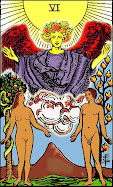That unforgiving taboo has been underscored this month in Riyadh when the goverment handed down strict punishment, which included suffering lashes and/or imprisonment, to five men and a female journalist allegedly involved in a provocative TV talk show interview that aired in July.
On Saturday, the female journalist was sentenced to receive 60 lashes for her links to a Saudi-owned Lebanese TV station that broadcast the show in which a Saudi man appeared to boast about his sex life, outraging Saudi conservatives and leading to the his Oct. 7 imprisonment.
The female journalist, Rosanna al-Yami said Saturday that a Jeddah judge dropped all charges that she had been directly involved with the program, on the Beirut-based network LBC. However, al-Yami said the judge sentenced her to receive 60 lashes for having been a part-time employee for LBC's Saudi operations. The judge said that LBC had lacked the appropriate operating license.
"It's a punishment for all journalists through me," al-Yami told Associated Press by telephone Saturday.
"They just said the channel was illegal. But the Saudi minister of information himself appeared on LBC a couple week ago," she said.
al-Yami is believed to be the first Saudi woman journalist to be given such a punishment. The charges against her included involvement in the preparation of the program, and advertising the segment on the Internet.
Her sentencing comes after a sales clerk with Saudi Arabian Airlines, Mazen Abdul Jawad was convicted Oct. 7 of offensive behavior. He was sentenced to five years in prison and is to receive 1,000 lashes.
His sentencing stemmed from his appearance on the LBC weekly talk show "Bold Red Line," in which he talked about picking up girls and having sex with them.
In the program, which aired July on the Lebanese LBC satellite channel, Abdul Jawad, 32, describes an active sex life, and even displays sex toys that were blurred by the station.
The divorced man with four children talked about the first time he had sex, and explained how he met women in Jeddah on the Red Sea coast. He also showed sexual aids he employed.
Extra-marital sex is illegal in Saudi Arabia, one of the most conservative societies in the Arab world.
“Abdul-Jawad was referring to other people’s sexual experiences and the aids were provided by LBC,” according to his attorney, Sulaiman al-Jumeii. “He wasn’t talking about himself.”
The attorney maintains that his client was duped by the TV station, and was even unaware in many cases he was being recorded.
The same court that sentenced al-Yami on Saturday had also sentenced Abdul-Jawad.
The content of the program violated the country’s media policy, Information Ministry spokesman Abdul Rahman al-Hazza said in a telephone interview in Riyadh in August. Saudi Arabia prohibits the use of sexual content on TV, in newspapers, or in books and magazines.
On Saturday, al-Jumeii told The Associated Press that not trying his client or al-Yami before a court that specialized in media matters at the Ministry of Culture and Information was a violation of Saudi law.
"It is a precedent to try a journalist before a summary court for an issue that concerns the nature of his (her) job," he said.
Three friends who appeared on the show with Abdul Jawad were sentenced to two-year terms in prison, and ordered to receive 300 lashes each; while a cameraman who helped film the episode was sentenced to two months in jail.
al-Hazza told The Associated Press on Saturday that he had no details of al-Yami’s sentencing, and could not comment.
When it aired in July, the interview spurred more than 200 people to file legal complaints against Abdul-Jawad, who was dubbed a “sex braggart” and the “Saudi Casanova” by the Saudi media, which cited many people in the kingdom as saying he should be punished. The Jeddah and Riyadh offices of LBC, which is controlled by Saudi Prince Alwaleed Bin Talal, were forced to suspend operations after the program aired.
Abdul Jawad later apologized, saying producers at the TV station had tricked him into some of his accounts.
"My client has been presented to the people as a scapegoat to cover up the real culprit LBC," al-Jumeii said.
Saudi Arabia enforces a strict version of Islam, requiring people to pray five times a day, banning women from driving and denying them work or travel without a male relative’s permission. Cinemas are prohibited, and religious police patrol shopping centers enforcing Islamic law, including preventing unmarried men and women from mingling.
(It is impossible for a westerner like me to relate to such strict behavioral standards. Even from a religious perspective, it is very, very difficult if not impossible for me to understand such requirements. It is, however, vital to remain respectful of other cultures and religions, and to strive to refrain from passing judgment.
It is essential that cultural patterns are reported, and that information runs freely between all societies regardless of religious or political beliefs, especially including societies that do not mirror our own. Understanding should be a universal goal if there is ever to be true peace between disparate countries. Information and communication is THE key to making that goal a reality.
I strongly believe that each US citizen has an ethical and moral duty to ensure our culture remains free, but it is NOT our job to impose those Democratic principals and values, or to force the religious freedoms that we enjoy upon the rest of the world. If any society wishes to embrace a broader view, their members must make an informed decision to do so. Change must come from within ---The Curator)




No comments:
Post a Comment